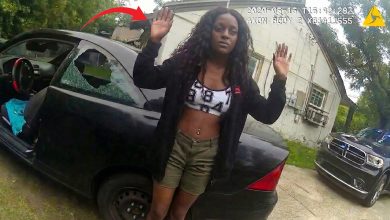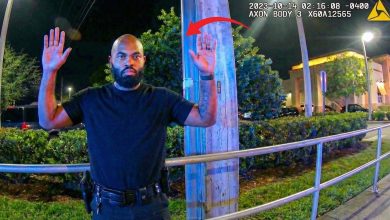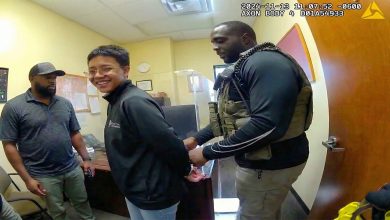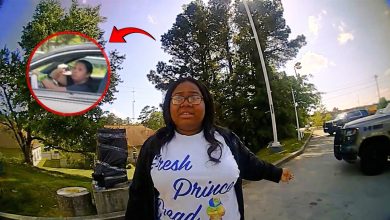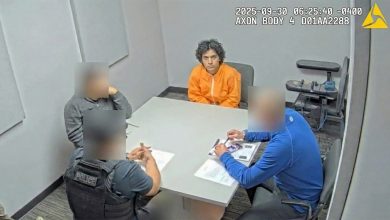Suppressors Aren’t the Problem—The Law Is
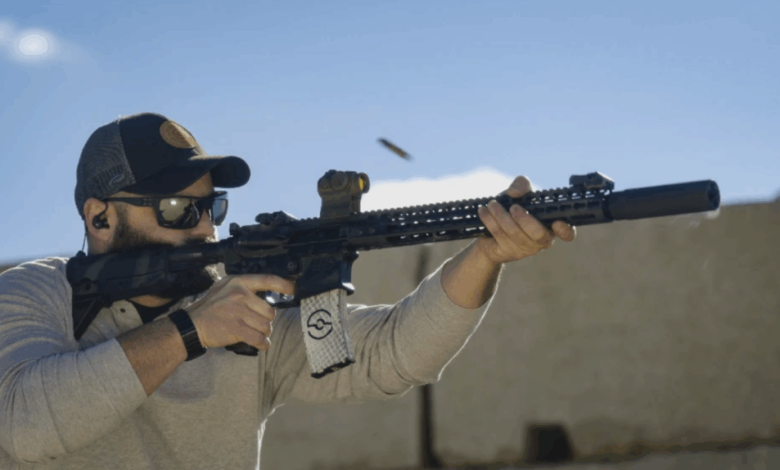
Walk into any gun store in America, and you can purchase a muzzle brake, flash hider, or riflescope without filling out a single form beyond the standard background check for the firearm itself. But try to buy a suppressor, a device that serves primarily as hearing protection—and you’ll encounter a bureaucratic maze involving a $200 tax stamp, months of waiting, and ATF approval. This doesn’t make sense, especially when you understand what suppressors actually do versus what Hollywood has trained us to believe.
Movies and television have sold the public a dangerous fiction: that suppressors turn firearms into whisper-quiet assassination tools. The reality couldn’t be more different. A suppressed firearm is still loud, roughly equivalent to a jackhammer or chainsaw. What suppressors actually do is reduce the sound signature from hearing-damage levels (140-170 decibels) down to levels that are merely very loud (120-140 decibels). They’re hearing protection that attaches to your barrel, not some magical silencing device from a spy thriller.
Are Suppressors Legal? Understanding Current Restrictions
Yes, suppressors are legal in 42 states for civilian ownership, but they’re heavily regulated under the National Firearms Act of 1934. This Depression-era legislation grouped suppressors with machine guns and short-barreled rifles, requiring federal registration, a $200 tax stamp, extensive paperwork, and wait times that can stretch from weeks to months. The process involves fingerprints, photographs, and ATF approval—bureaucratic hurdles that don’t exist for any other firearm accessory.
Why are suppressors restricted this way? The answer lies in 1930s-era fears about gangsters and poachers, not in any legitimate public safety concern. When the NFA was drafted, lawmakers worried about criminals using suppressors to poach game during the Great Depression or to commit crimes undetected. Nearly a century later, these restrictions remain in place despite a lack of evidence that legal suppressor ownership contributes to poaching or other crimes. In fact, suppressors are used in criminal activity so rarely that the ATF doesn’t even track them as a separate category in crime statistics.
The Hearing Protection Argument
The primary benefit of suppressors is hearing protection, full stop. The CDC reports that noise-induced hearing loss affects approximately 24% of American adults, and shooters are particularly vulnerable. A single shot from an unsuppressed firearm can cause permanent hearing damage. Ear protection helps, but it’s not always practical or sufficient, especially in hunting situations where you need to hear your surroundings or in defensive scenarios where there’s no time to don hearing protection.
Suppressors provide a crucial layer of protection. They reduce muzzle blast to levels that, while still requiring ear protection for extended shooting sessions, are significantly less damaging. For hunters, this means being able to hear game movement and communicate with hunting partners without having to remove ear protection. For sport shooters, it means reduced cumulative damage over thousands of rounds. For anyone concerned about home defense, it means protecting your family’s hearing in the catastrophic event you need to fire a weapon indoors.
Consider this: We don’t require a tax stamp and federal registration to buy electronic ear muffs or custom-molded earplugs. We recognize those as safety equipment to protect our hearing. Suppressors deserve the same classification.
Beyond Hearing: Recoil Reduction and Accuracy Benefits
Suppressors offer benefits that extend well beyond hearing protection. They reduce felt recoil by 30-40%, making firearms more controllable and shooters more accurate. This is particularly valuable for new shooters, youth shooters, or anyone with physical limitations that make recoil management challenging. Reduced recoil means better shot placement, which is critical whether you’re punching paper at the range or ensuring an ethical, humane harvest while hunting.
The reduction in muzzle blast and flash also helps shooters maintain situational awareness and recover their sight picture faster between shots. Without the concussive blast disorienting the shooter, follow-up shots become faster and more accurate. These aren’t tactical advantages reserved for special operations—they’re practical benefits that make every shooter safer and more effective.
Being a Good Neighbor
There’s another compelling argument for suppressor deregulation that has nothing to do with the shooter: community relations. Shooting ranges face constant pressure from neighboring residential developments, with noise complaints often leading to restricted hours, lawsuits, or even closures. Suppressors significantly reduce the noise pollution that ranges create, making them better neighbors and helping to preserve shooting facilities for future generations.
Rural and suburban shooters face similar challenges. The sharp crack of gunfire carries for miles, disturbing neighbors and wildlife alike. Suppressors mitigate this disturbance without requiring shooters to travel to distant facilities or limit their practice to inconvenient hours. In European countries where suppressors are often sold over the counter or even required for hunting, this neighborly consideration is simply common sense.

The International Perspective
The United States stands virtually alone in its restrictions on suppressors. Many European nations—including countries with strict gun control laws—treat suppressors as simple firearm accessories or even mandate their use for hunting to protect both hearing and reduce noise pollution. In the United Kingdom, suppressors are actively encouraged for hunting and can be purchased with less paperwork than required for the firearms themselves. New Zealand, Finland, Norway, and France all have suppressor regulations that are far less restrictive than the United States’ NFA requirements.
If suppressors were the criminal tools of Hollywood fiction, these countries would have epidemic levels of suppressor-related crime. They don’t. The evidence is clear: Suppressor regulations have nothing to do with public safety and everything to do with outdated perceptions and legislation.
A Logical Path Forward
The solution is straightforward: Remove suppressors from NFA regulation and treat them like any other firearm accessory. A buyer purchasing a suppressor would still undergo the same background check required for the host firearm—the same system that processes millions of transactions annually. There’s no need for additional waiting periods, tax stamps, or federal registration specifically for an accessory that makes shooting safer and more neighborly.
This isn’t a radical proposal. Multiple pieces of legislation, including the Hearing Protection Act, have sought to deregulate suppressors precisely along these lines. The logic is sound: If we trust citizens to purchase firearms after a background check, we should trust them to purchase safety equipment for those firearms using the same process.
Education and Access: The Silencer Shop Model
Industry leaders, such as Silencer Shop, have worked tirelessly to educate the public about the benefits of suppressors and streamline the currently cumbersome purchasing process. Through educational content, simplified ATF paperwork, and partnerships with dealers nationwide, they’ve made suppressors more accessible within the existing regulatory framework. But education and efficiency can only go so far when the framework itself is fundamentally flawed.
The real solution requires legislative action to remove suppressors from NFA restrictions entirely. When that happens, the infrastructure is already in place, dealers are trained, manufacturing capacity is expanding, and public education efforts have laid the groundwork for informed consumers.
Wrap Up: Safety Equipment Shouldn’t Require a Permission Slip
Suppressors are safety devices that protect hearing, reduce recoil, improve accuracy, and make shooting more neighbor-friendly. They don’t make guns silent. They don’t enable crime. They simply make shooting safer and more pleasant for everyone involved. The fact that you can walk into a store and buy a muzzle brake without paperwork but need federal permission for a suppressor reveals a regulatory scheme rooted in mythology rather than reality.
It’s time to treat suppressors like what they are: practical accessories that should be as easy to purchase as optics, slings, or any other item that makes shooting safer and more effective. The wait times, tax stamps, and bureaucratic hurdles serve no legitimate public safety purpose. They simply prevent law-abiding citizens from being able to purchase them over the counter, just like optics and muzzle brakes.
Read the full article here



